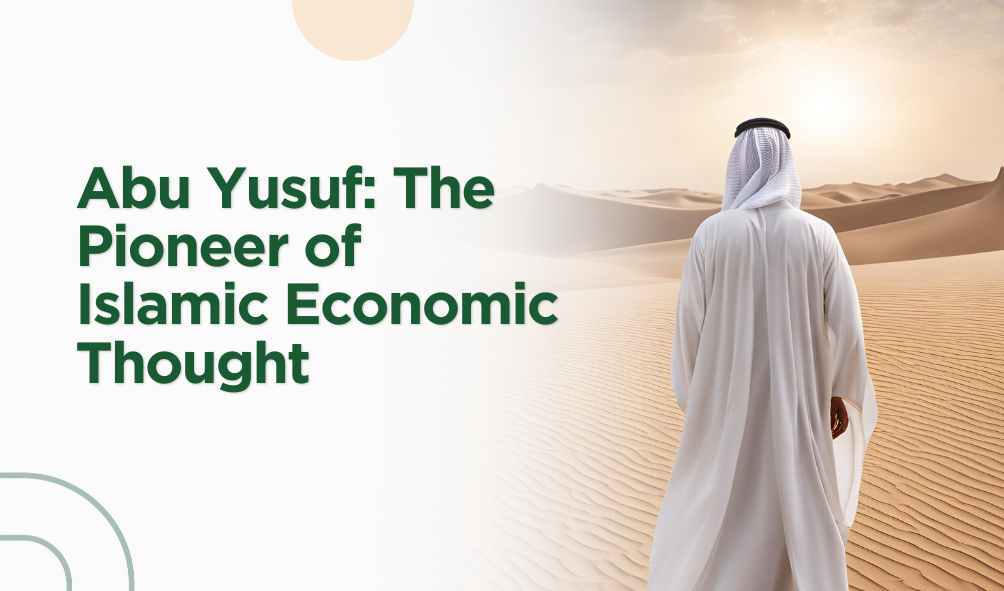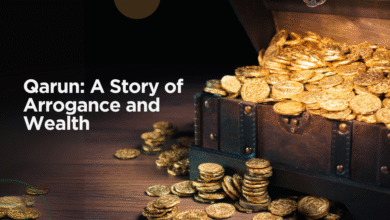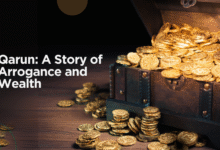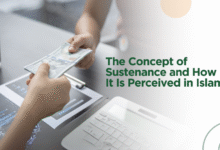Abu Yusuf: The Pioneer of Islamic Economic Thought
Abu Yusuf, whose full name is Ya’qub bin Ibrahim bin Habib al-Anshari, was a distinguished scholar in the field of fiqh and a student of Abu Hanifah, the founder of the Hanafi school of thought. Born in Kufa in 113 AH/731 CE and passing away in Baghdad in 182 AH/798 CE, Abu Yusuf hailed from a family with Anshar lineage on his mother’s side. His impressive intellectual career included learning from notable scholars such as Hisyam bin Urwah, Abi Ishaq, and al-Shaibani. Under the guidance of Abu Hanifah for 17 years, he emerged as a key figure in the development of the Hanafi school. Despite being a loyal student, Abu Yusuf was known for his independent thinking and occasionally diverged from his mentor’s opinions on various fiqh issues.
Throughout his life, Abu Yusuf made significant contributions to the development of Islamic law, particularly through his experience as a judge during the Abbasid era. He also studied under Ibn Abi Laila, a mujtahid who played a crucial role in shaping his legal thought. Although he distanced himself from governmental affairs for 16 years following Abu Hanifah’s death, Abu Yusuf’s expertise in fiqh gained him widespread recognition among both the public and the court.
Also read: How Caliphs Refused Salaries as Public Officials
Abu Yusuf’s Contributions
One of Abu Yusuf’s most monumental works is Kitab Al-Kharaj, which addresses various sources of state revenue such as kharaj, jizyah, zakat, and also discusses regulations regarding warfare and treatment of non-Muslims and apostates. This book is based on the Qur’an, Hadith, as well as istishlah and istihsan methods. Al-Kharaj not only focuses on Islamic financial systems but also provides realistic solutions for public expenditure management according to the economic conditions of his time.
Key Contributions of Abu Yusuf in Islamic Economics
- Kharaj and Jizyah PoliciesAbu Yusuf argued that kharaj taxes on agriculture should be adjusted based on the land’s condition, crop yield, financing costs, irrigation systems, and the prosperity of the local community. This approach emphasizes morality and justice in taxation. He recommended a muqāsamah (proportional tax) system instead of a misāhah (fixed tax), believing that a proportional system would better reflect the taxpayer’s ability and avoid exploitation.
- Autonomous Economic SystemHis ideas laid the groundwork for modern economic thought, particularly regarding government intervention in market pricing. He believed markets should have the freedom to regulate trade and prices, as government interference could disrupt the laws of supply and demand. While emphasizing justice, balance, benevolence, and free will, he acknowledged that government intervention is necessary during crises to mediate solutions. Effective oversight from the state is crucial across all economic sectors to prevent prohibited transactions.
- Public Finance PolicyIn his views on public finance, Abu Yusuf stressed the state’s role in economic activities. The welfare of the people is the government’s responsibility, thus projects aimed at public welfare—such as irrigation, bridges, and infrastructure—should be funded by the state. Conversely, projects benefiting specific individuals should be financed by those parties. He urged the government to provide adequate resources to support the community’s well-being.
Also read: Three Schools of Thought in Islamic Economics
Conclusion
Abu Yusuf’s influence on the Islamic world is profound, particularly in the development of legal and economic policies. His ideas on taxation, wealth management, and the role of the state in the economy laid important foundations for later Muslim thinkers like Al-Mawardi and Ibn Khaldun. Kitab Al-Kharaj remains a key reference for Islamic rulers in managing fiscal and public financial policies.
In the modern context, Abu Yusuf’s works continue to serve as valuable resources for economists and researchers interested in Islamic economics. His insights, rich in moral and ethical values, offer an alternative perspective on economics that prioritises social welfare alongside profit.

References:
- Chapra, M. Umer. (2000). The Future of Economics: An Islamic Perspective. The Islamic Foundation.
- Islahi, A.A. (2005). History of Islamic Economic Thought. The Islamic Research and Training Institute.
- Qoyum, A., Nurhalim, A., Fithriady, M. D. P., Ismail, N., & Ali, M. H. K. M. (2021). Sejarah Pemikiran Ekonomi Islam. Jakarta: Departemen Ekonomi dan Keuangan Syariah, Bank Indonesia.







